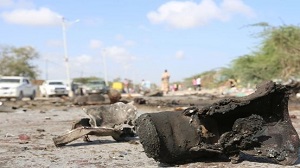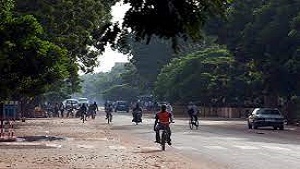Fighters from the armed groups that defeated the jihadists feted the end of a punishing six-month battle by flying Libyan flags over the Mediterranean city, once known mainly as the hometown of late dictator Muammar Gaddafi, more recently as the main stronghold outside Syria and Iraq of Islamic State's caliphate.
But the campaign has been far from the unifying event some had hoped for. Celebrations have been muted by the risk of jihadist counter attacks and the potential for renewed war among Libya's military factions. The past week's developments give a measure of the chaos still enveloping Libya, five years after the NATO-backed uprising that overthrew Gaddafi.
Just hours after the last district in Sirte was cleared, fighters in a newly formed force swept up from the desert south of the city towards Libya's Oil Crescent, looking to recapture ports that had changed hands three months before.
Tripoli has seen its worst clashes for more than a year as the capital's militias rolled tanks onto the streets in a feud infused with ideological and political disputes. And in the main city in the east, the self-styled Libyan National Army (LNA) continued to suffer heavy casualties as it struggles to secure parts of Benghazi against Islamist-led rivals after more than two years of warfare.
A half-formed, UN backed government based in the capital looks increasingly helpless to stop the turmoil though Western powers insist that it represents the only path towards peace.
UN Libya envoy Martin Kobler told the Security Council this week that while a peace plan signed a year ago had stalled, weapons were still being delivered into Libya, the economy was facing "meltdown", and the country remained a "human marketplace" for migrants trying to reach Europe.
Gains against militants in Sirte and Benghazi were "not irreversible", he added. The campaign in Sirte was led by brigades from Misrata, an influential port east of Tripoli. They launched their offensive in May when militants advanced up the coast towards their city.
The UN backed Government of National Accord (GNA) scrambled to take command, but only ever had nominal control over fighters on the ground, some of them with different agendas beyond the campaign in Sirte.
The brigades hoped the battle would be finished in weeks, but their progress was halted by Islamic State snipers, suicide bombers and mines. By mid-summer, with casualties mounting and an official request from the GNA, they called in the help of US air support. Nearly 500 strikes were carried out over Sirte between August 1 and early December.
After the last buildings in Sirte's Ghiza Bahriya neighbourhood were secured on Tuesday, jubilant fighters paraded through the streets, chanting that the deaths of more than 700men from within their ranks had not been in vain.
But there have been no such scenes in Misrata, a city whose fighting force was forged in the 2011 uprising and string of military campaigns in the years that followed.
--Reuters--
Please visit our Poll section on the website and take part, have your say as our valued reader.













